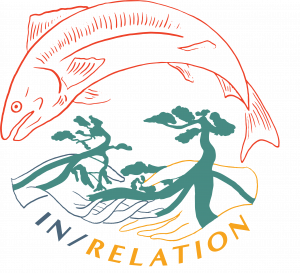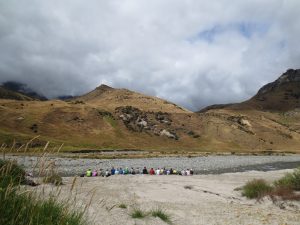Microagressions in the Online Classroom
This is a collection of scenarios that illustrate microaggressions in the online classroom. These scenarios were created by a diverse group of undergraduate students at UBC.
In/relation: Developing Guidelines to Navigate Complex Classroom Dynamics
This case study explores complex classroom dynamics involving International and Indigenous learners speaking from their own experiences and positionalities.
Who belongs in the outdoors doing fieldwork?
You teach a first year geology course. A program advisor in your department comes to you with a concern that was brought up by a female student in your course. According to the program advisor, the student is really enjoying the course and has decided she wants to major in geology. However, she doesn’t feel that she “belongs” in the discipline…
Writing as the test of knowledge?: Towards more inclusive course design
This case study scenario illustrates a common missed step in course design, especially among instructors who were trained in disciplines that traditionally rely on one particular form of assessing student learning (in this case, writing). One of the key guiding principles of learner-centred course design is to align three features of a course…
What I Learned In Class Today
You are teaching a second year political science class. At the start of each class, you open with a short discussion topic on relevant news in the media and its’ impact on Canadian politics as a way for your students to apply theory to practice. A student in your class, Karen, brings up the two verdicts of Colten Boushie and Tina Fontaine and how these two verdicts have been all over her social media…
I’m for equity and inclusion, but…
In response to the Provost’s commitments to the Intersectional Gender-based Violence and Aboriginal Stereotypes (IGBVAS) Task Force Report, CTLT has created Equity and Diversity Working Group (EDWG) to support the Task Force’s goals through CTLT’s programs and services and for internal capacity development within CTLT.
What’s in a name?
Your colleague, Sam Smith, who works in Science Advising, comes to you to for advice on how to get one of his students, Njoki Wane, more engaged. He tells you the story of the first time he met Njoki. He was unsure how to pronounce the student’s name.
Inappropriate Class Comment
Ray is a student who is part of a peer-coaching group. They are concerned because an instructor in their ECON class made a disparaging remark about Africa and ‘third world’ countries draining the world economic system.
Language skill requirements and career navigation
A student you know, Sampson, comes to you asking for advice on a new career trajectory. As part of your conversation, he shares that he’s concerned about his accent.
Advising International Exchange Students
In your work with students who study abroad, you have noticed that some of them return with impactful experiences around privilege and discrimination from the time in their host country. Usually, they speak about these themes by positioning themselves as a foreigner in the host country.









